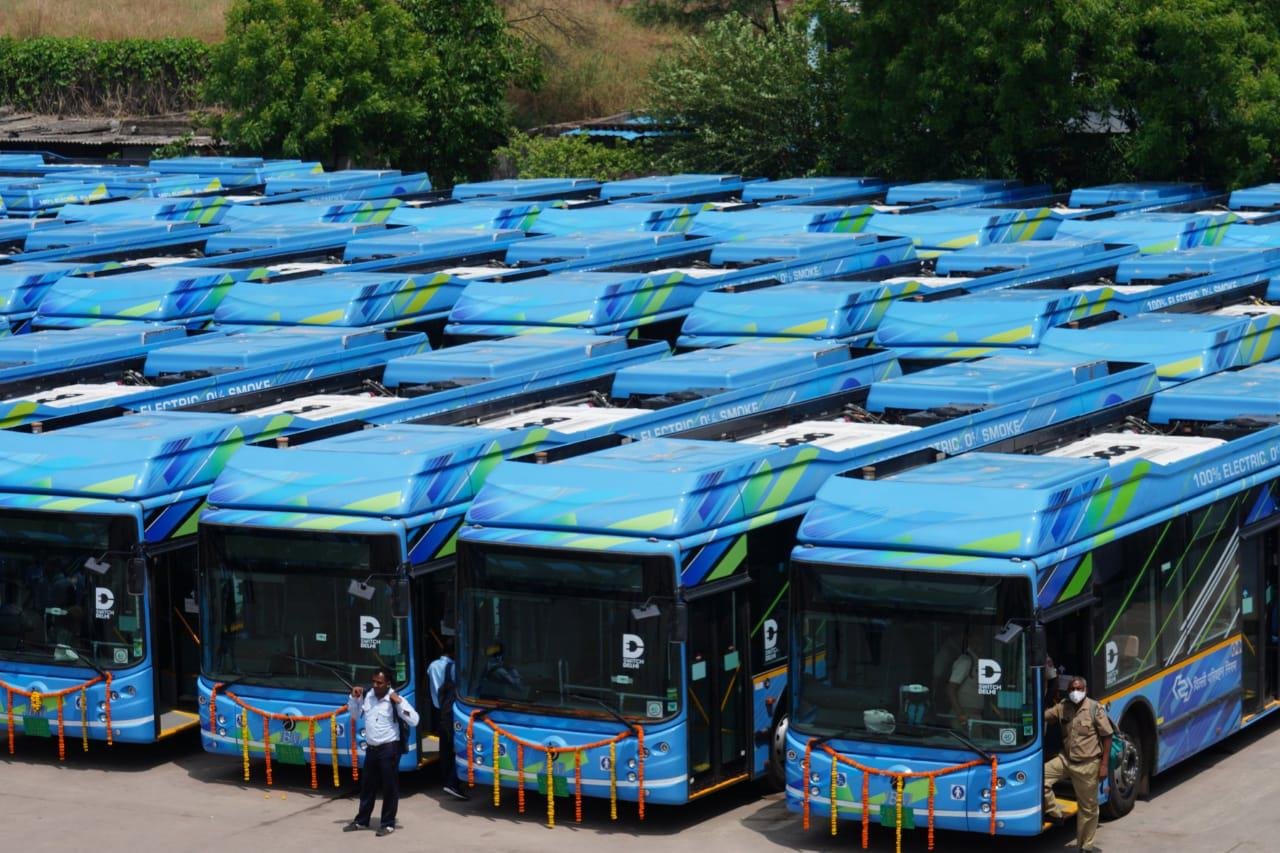The Delhi government has launched a series of new and extended bus routes, including the introduction of air-conditioned electric buses. This initiative, which aims to enhance connectivity across key areas of the city, marks an important step in the government’s commitment to improving public transport and reducing the environmental impact of urban commuting.
Transport Minister inaugurated the new services on Tuesday, announcing Route 605B and extensions to existing routes 623 and 610A. The new Route 605B, which will operate with two air-conditioned DTC electric buses, will cover a 15 km stretch between Safdarjung Terminal and Nangal Dewat. This route will make several important stops, including Safdarjung Hospital, AIIMS Metro Station, Green Park Metro Station, and notable educational institutions such as JNU and Manav Sthali School. It provides convenient access to healthcare and academic hubs, catering to the needs of students, healthcare workers, and local residents. Route 623, previously ending at CPWD in Vasant Vihar, has now been extended to Nangal Dewat, adding 33.7 km to its coverage. This extension will feature a mix of 20 buses, including 16 electric AC buses, three AC CNG buses, and one non-AC CNG bus. The extended route will serve important areas like AIIMS, Khan Market, India Gate, Lodhi Road, and Shahdara, thereby improving connectivity between South and North Delhi. The extension of Route 610A from RK Puram Sector-1 to Nangal Dewat, covering a 27 km segment, was introduced in response to specific demands from local residents, particularly athletes in Munirka who had expressed challenges in accessing public transport for their training.
These new and extended routes are designed to fill critical gaps in Delhi’s public transport system, offering greater convenience to daily commuters, students, and professionals across the city. The initiative is particularly aimed at areas with specific transportation needs, ensuring more inclusive and accessible travel options for all residents. “We are committed to expanding and modernising Delhi’s public transport system to meet the diverse needs of our residents,” said Transport Minister during the inauguration ceremony. “These new routes are a testament to our ongoing efforts to create a sustainable, convenient, and accessible transport network for everyone.” The launch of electric buses on these routes is in line with the Delhi government’s broader focus on reducing the city’s carbon footprint. The adoption of electric vehicles (EVs) in public transport aligns with the government’s green initiatives to tackle air pollution and promote eco-friendly commuting options.
The Delhi Transport Corporation (DTC) has been steadily increasing the number of electric buses in its fleet, making it one of the largest public sector operators of electric buses in India. These efforts are expected to reduce the dependence on conventional fuel-based buses, further contributing to a cleaner, greener Delhi. With these new services, the Delhi government aims to provide a more sustainable, cost-effective, and convenient transport solution to meet the needs of the city’s growing population. The initiative is expected to ease congestion, reduce pollution, and improve the overall quality of life for commuters across Delhi.


